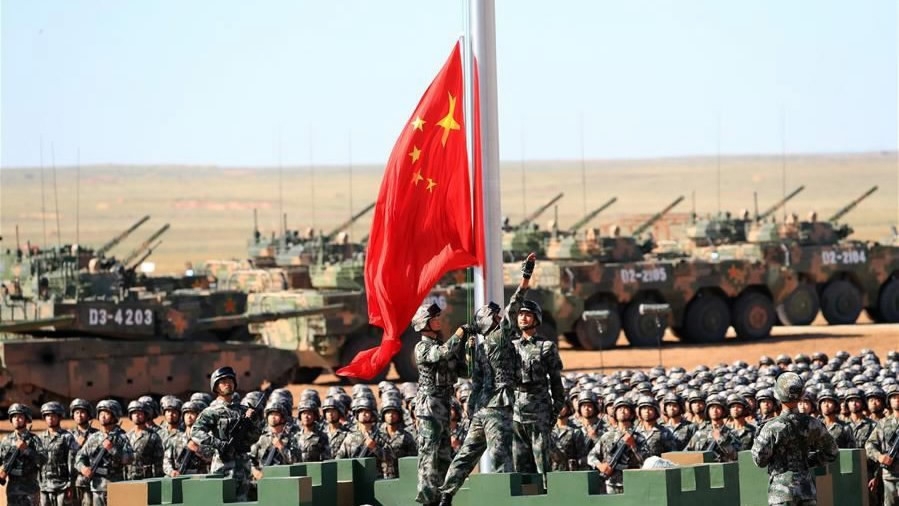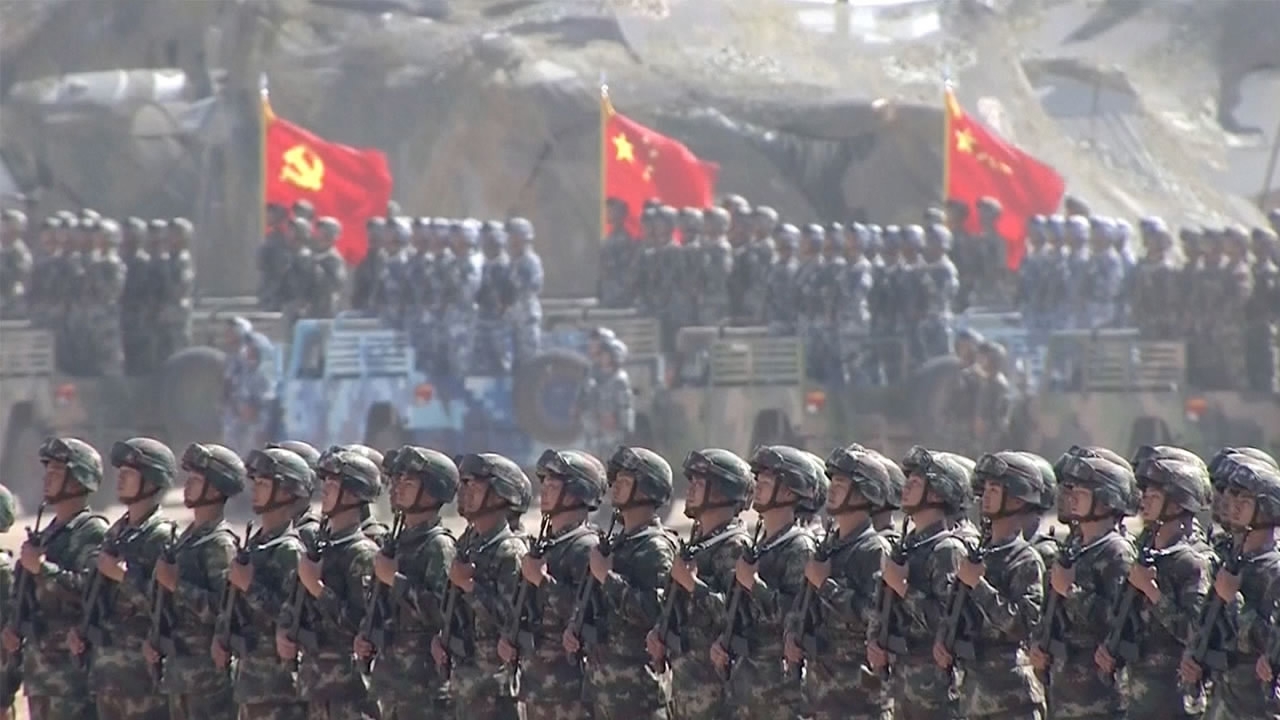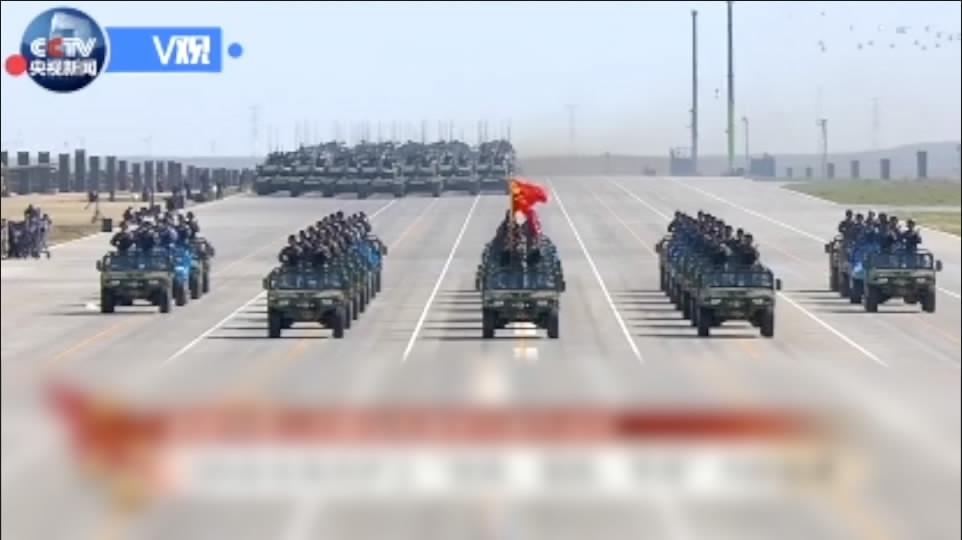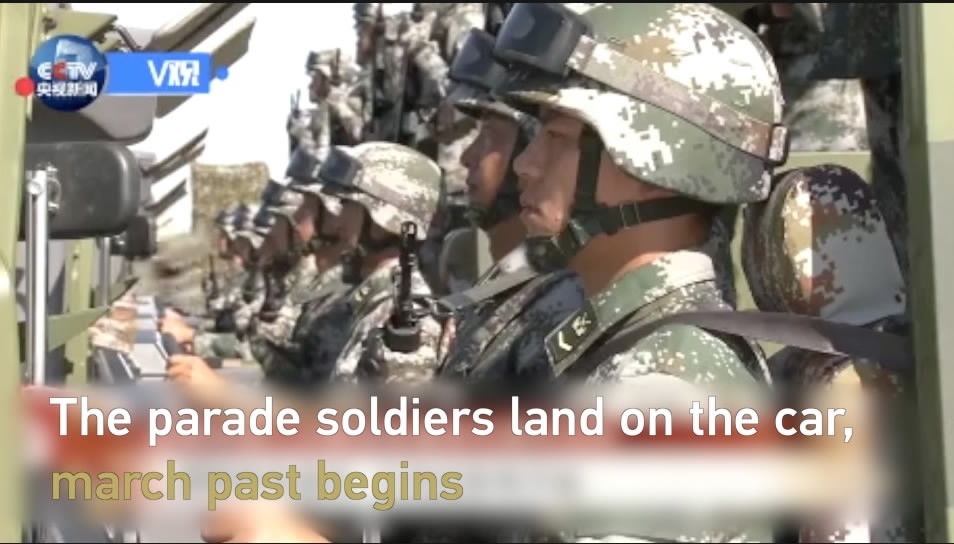
Politics
12:41, 01-Aug-2017
Opinion: Powerful army assures the Chinese Dream

By Li Daguang in Global Times
This year marks the 90th anniversary of the establishment of the Chinese People's Liberation Army (PLA).
Over the past 90 years, the PLA has been developing, expanding and reforming itself. As it marks its 90th anniversary, the PLA is undergoing extensive reforms to build a powerful army and a powerful China.
Since the 18th National Congress of the Communist Party of China (CPC), the Central Committee of the CPC and Chinese President Xi Jinping, also general secretary of the CPC Central Committee and chairman of the Central Military Commission (CMC), have led the PLA to embark on a new journey, aiming to develop the PLA into a first-class army.
In the past five years, national defense forces and the military underwent steady and bold reforms and made historical achievements in major areas.

The current reorganization and restructuring of the PLA is aimed at reshaping modern military strength with Chinese characteristics.
The reforms aim to build an elite combat force, optimize the army's structure and composition, and push forward a leaner and more efficient chain of command. The reforms will lead to a troop reduction of 300,000 by the end of 2017.
As the CMC takes charge of the overall administration of the PLA, the Chinese People's Armed Police and the militia and reserve forces; battle zone commands focus on combats; and different military services pursue their own construction, the four general headquarters have been adjusted and a multiple-department system under the CMC has been formed. The former seven military regions have been reclassified into five theater commands.
These measures, which aim to build a first-class army, bear significant strategic importance in ensuring the PLA to win every battle and effectively safeguard China's national security.

Optimizing the PLA's structure and composition and solving the structural conflicts that constrain the development of China's national defense and the military are requirements to boost the strength of national defenses and the military.
After recent high turnover, the PLA has become more simplified and efficient, its structure optimized and composition scientific. A joint combat force centered on an elite combat force is coming into shape.
An army can stand on its feet only when it endeavors to reform. With the current unstable international security situation, a strong army is needed to maintain national security and world peace. The construction of a new world order is a long-term process, and real and potential war threats beleaguering the world still exist.
For instance, hegemonism, power politics and neo-interventionism are rising. Territorial disputes, geopolitical competition of major powers, military rivalry and ethnic and religious conflicts have become prominent. Protectionism, populism and nationalism have new manifestations.
Traditional security threats and non-traditional security threats such as arms races, terrorism and cyber security have become intertwined. Regional chaos has constantly occurred and there is a bumpy road ahead for peace.

Nowadays, China is faced with a complex security situation in its periphery, so it is in need of an invincible people's army. In the years to come, the risks China faces will be exposed, especially maritime security risks and threats at China's southwestern border areas.
There is an increasing possibility of a war at China's doorstep. All these threats urgently require the PLA to carry out in-depth reforms to adapt to the demand of maintaining China's security and stability.
The world's military revolution is thriving. The Pentagon's Third Offset Strategy pursues next-generation technologies and concepts to assure US military superiority. Russian military reform aims to build a new type of informationized combat force.
Countries such as the UK, France, Germany, Japan and India are all adjusting and optimizing their military forces. This international military revolution directly affects a country's military and overall strength and matters to a country's strategic initiative. If China does not catch up with this trend and falls behind in its military development, it will have a devastating consequence on the country's national security.
Consolidating national defense and building a powerful army is the strategic task of China's modernization. The PLA is the eternal defense for the country and its people. A powerful army will provide the most vigorous assurance for the Chinese Dream.
(The author is a professor at the National Defense University of the PLA. The article reflects the author's opinion, and not necessarily the view of CGTN.)
Related stories:

SITEMAP
Copyright © 2018 CGTN. Beijing ICP prepared NO.16065310-3
Copyright © 2018 CGTN. Beijing ICP prepared NO.16065310-3